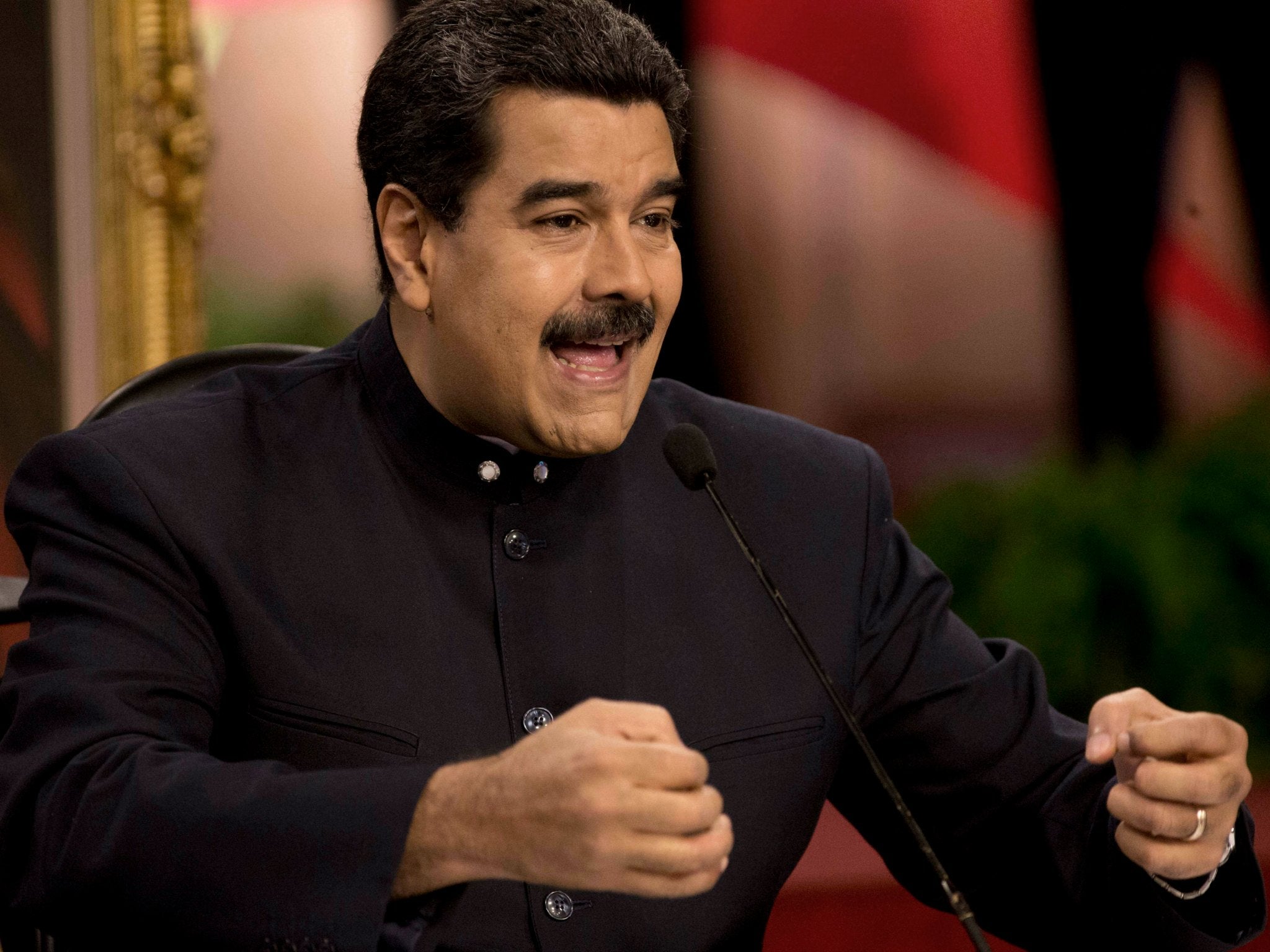Donald Trump launches new financial sanctions against the 'dictatorship in Venezuela' by executive order

Support truly
independent journalism
Our mission is to deliver unbiased, fact-based reporting that holds power to account and exposes the truth.
Whether $5 or $50, every contribution counts.
Support us to deliver journalism without an agenda.

Louise Thomas
Editor
Donald Trump has signed an executive order “imposing strong, new financial sanctions on the dictatorship in Venezuela”, according to the White House, an escalation of the US's crackdown on the South American country.
“The Maduro dictatorship continues to deprive the Venezuelan people of food and medicine, imprison the democratically-elected opposition, and violently suppress freedom of speech.” the White House said in a statement.
The sweeping financial sanctions are aimed at restricting the ability of Mr Maduro's regime to finance its “unconstitutional” and “undemocratic behaviour,” according to a senior administration official.
“We will not allow the United States’ financial system to participate in the underwriting of the Maduro dictatorship” amid “a wholesale looting of the Venezuelan economy and the violent oppression of the Venezuelan people,” a senior administration official said. “We’re closing off his access to the markets for the financing he’s been using to prop up his regime and to fund the security apparatus that is repressing the Venezuelan people.”
Under the new measures, institutions in the US will be prohibited from trading new bonds and stocks issued by Mr Maduro’s government, including through the state-owned oil company, Petróleos de Venezuela SA (PdVSA), the parent company of Citgo. Banks also cannot engage in new lending with the government or the oil conglomerate. These new restrictions dealing with Venezuela’s access to credit were effective immediately, officials said.
The sanctions are bound to dramatically escalate tensions between Venezuela and Washington and exacerbate the South American country's economic crisis.
Recession and currency controls in Venezuela have led to declines in local production and imports of foreign goods, resulting in shortages of everything from flour to vaccines and medicines. The crisis is so severe that 75 per cent of the country’s population has lost an average of 19 pounds in weight, a study by three Venezuelen universities has found.
The White House said the sanctions “are carefully calibrated to deny the Maduro dictatorship a critical source of financing to maintain its illegitimate rule, protect the United States financial system from complicity in Venezuela's corruption and in the impoverishment of the Venezuelan people, and allow for humanitarian assistance”.
“Maduro’s economic mismanagement and rampant plundering of his nation’s assets have taken Venezuela ever closer to default,” it added. “His officials are now resorting to opaque financing schemes and liquidating the country’s assets at fire sale prices.”
In pictures: The crisis in Venezuela
Show all 22A senior administration official said the goal of the US is to see the Venezuelan government restore its democracy by having free and fair elections, respecting the constitution, and releasing political prisoners. If Mr Maduro's regime does not comply, the US has “more room” to escalate sanctions, the official said.
Speaking to reporters in New Jersey earlier this month, Mr Trump said the US has “many options for Venezuela including a possible military option if necessary”.
“The people are suffering and they are dying,” the President said.
Mr Trump's signing of his executive order on Friday followed Mr Maduro's decision to convene a special assembly to rewrite Venezuela's constitution – a plan rejected by millions of Venezuelans in a referendum organised by the country's main opposition parties. Mr Maduro's regime declared the referendum as illegal.
Speaking at the United Nations on Friday, Venezuela's foreign minister Jorge Arreaza called the new US financial sanctions “the worst aggressions to Venezuela in the last 200 years, maybe”.
Using a phrase frequently deployed by Mr Trump to describe media coverage he doesn't like, Mr Arreaza also said his country was a victim of “fake news” that exaggerated its economic difficulties.
Subscribe to Independent Premium to bookmark this article
Want to bookmark your favourite articles and stories to read or reference later? Start your Independent Premium subscription today.
Join our commenting forum
Join thought-provoking conversations, follow other Independent readers and see their replies
Comments